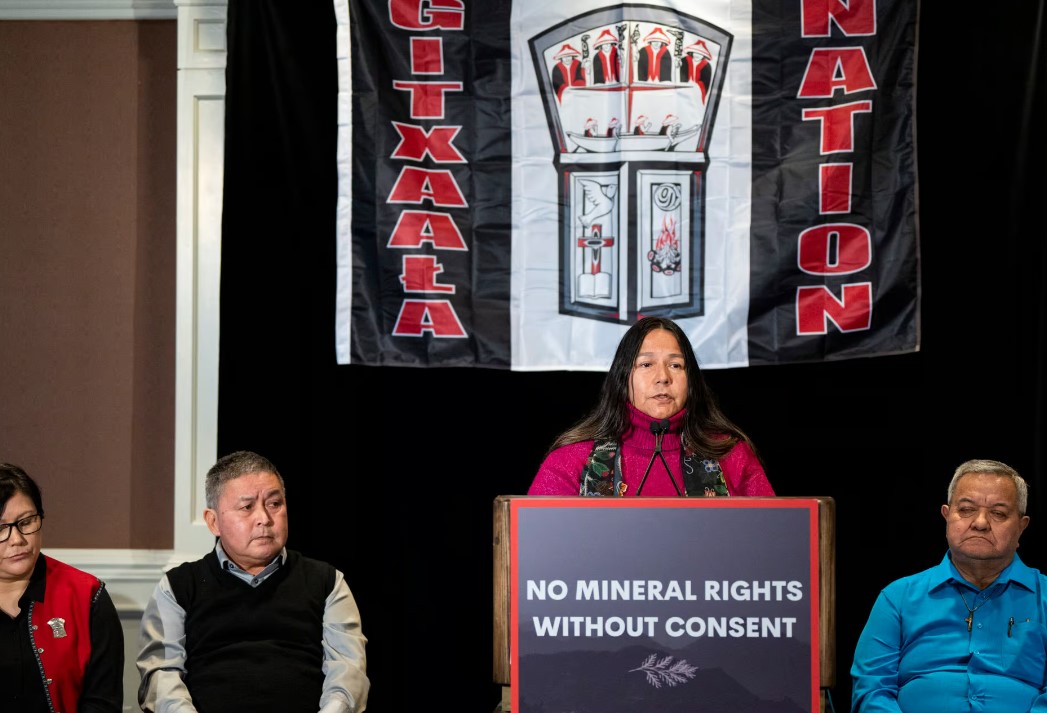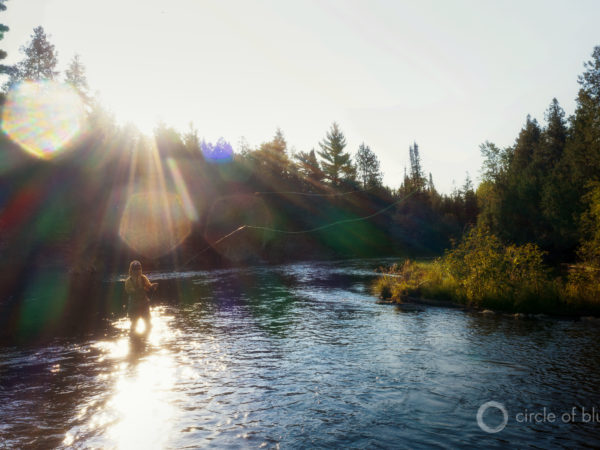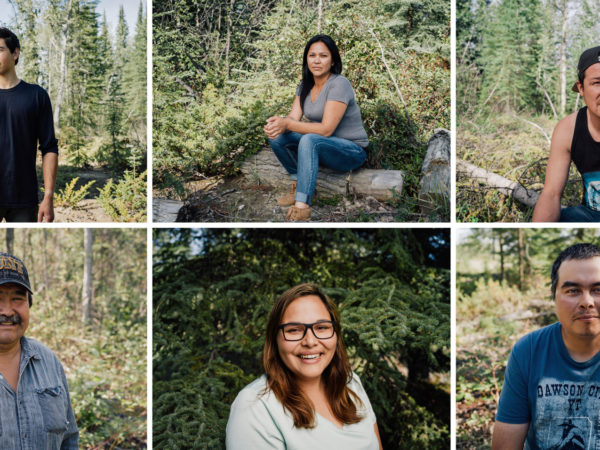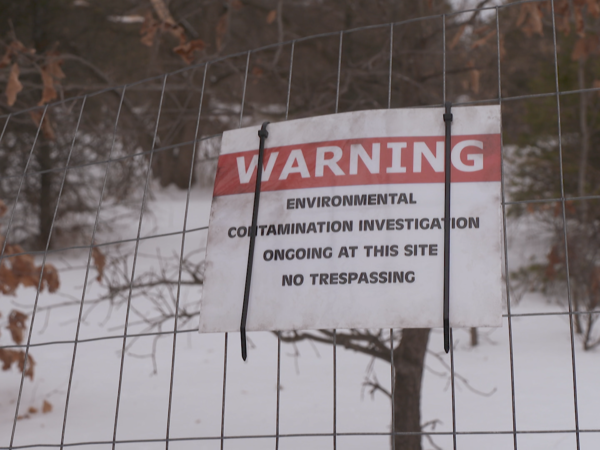
By Emma McIntosh
The Great Lakes News Collaborative includes Bridge Michigan; Circle of Blue; Great Lakes Now at Detroit Public Television; Michigan Public, Michigan’s NPR News Leader; and who work together to bring audiences news and information about the impact of climate change, pollution, and aging infrastructure on the Great Lakes and drinking water. This independent journalism is supported by the Charles Stewart Mott Foundation. Find all the work HERE.
Six northern First Nations have filed a court case challenging a major section of Ontario’s mining law, an attempt to strike down the existing system for how mineral claims are staked.
The case, filed at the Ontario Superior Court of Justice last week, could disrupt Premier Doug Ford’s push for a mining boom, especially in the far northern Ring of Fire. The application was filed Aug. 9 by Apitipi Anicinapek Nation, Aroland First Nation, Attawapiskat First Nation, Fort Albany First Nation, Ginoogaming First Nation and Kitchenuhmaykoosib Inninuwug. It alleges the current system, which allows miners to stake claims without consulting First Nations, violates their Treaty and Charter rights.
“The Mining Act in Ontario is racist, colonialist in very many ways, and it has to fall,” Kate Kempton, the lawyer representing the nations, told reporters at Queen’s Park Monday.
In Ontario and many other provinces and territories, the right to mine a piece of land is separate from the right to own a piece of land. Even on Indigenous territory and some private property, the province asserts that it owns the rights to explore for minerals and, eventually, take those minerals out of the ground (an assertion that is also being challenged in a separate court case). The province sells that right to companies or people who stake claims under Ontario’s Mining Act, which defines how mineral extraction can happen.
For hundreds of years, prospectors would go out onto the land and put a physical stake into the ground. But Ontario overhauled that system in 2018 when it rolled out an online portal that allows pretty much anyone to register a claim for a small fee in a matter of minutes.
You don’t have to live in Ontario, visit the site or consult with First Nations before registering a claim — and the province doesn’t automatically inform nations about them. Very few claims become mines, but they can still be disruptive: claimholders have the right to bar access to the land and seek permits for exploratory work like drilling. They also block First Nations from turning the land into reserves or Indigenous Protected and Conserved Areas. And once they’re registered, claims are extremely difficult to remove.
The system was designed by the previous Liberal government and rolled out under Ford’s Progressive Conservatives. It’s similar to the mineral staking system in British Columbia, where a 70 per cent increase in staking occurred the year the process went online. In Ontario, it has also allowed a deluge of claims — thousands and thousands of them on First Nations’ land, too many for the communities to look at and respond to, if they even find out about them. Oftentimes, people don’t know about a claim until they find a fence and a locked gate surrounding a place where they used to hunt and harvest.
The application filed in court by the six communities argues that allowing miners to register claims without first engaging First Nations violates their Treaty Rights and their constitutional right to be consulted about what happens in their territory. It also argues that Ontario’s system for consulting communities about the exploratory work that leads from claims is inadequate.
“They pretend that they’re engaging with First Nations, but they do nothing effectively but send out form letters,” Kempton said. “It’s an appalling, insulting, discriminatory regime.”
All in all, the system allows the rights of claimholders to take precedence over Indigenous Rights, Apitipi Anicinapek Chief June Black told reporters Monday.
“The Ontario Mining Act is a piece of racist legislation that bulldozes over First Nations lands and rights,” she said. “It says to the world that the land in Ontario is free for the taking and drilling and blowing up. These are not your lands to give away, Ontario.”
The application calls on the court to strike down the sections of the Mining Act about mineral claims, void all existing claims staked under the current regime that haven’t yet received permits and order Ontario to amend the law in consultation with First Nations.
The office of Ontario Mining Minister George Pirie didn’t answer questions about the case. But Jack Fazzari, a spokesperson for Ontario Attorney General Doug Downey, confirmed the government had been served with the court application and declined to comment.
Court case against Ontario mining claims follows landmark decision in B.C.
For months, First Nations in Ontario have been upping the pressure on the Ford government to overhaul the mineral claim regime. That heat comes in the wake of a landmark decision from British Columbia’s Supreme Court: in fall 2023, the court sided with Gitxaała Nation and Ehattesaht First Nation in a fight against the province’s mineral claim system, and found that it violated Indigenous Rights. The B.C. government is now in the processing of overhauling its system to include the duty to consult First Nations.
In January, the Chiefs of Ontario, a group representing all 133 First Nations in the province, called on the Ford government to put a year-long pause on new claims and change the system to incorporate Indigenous consultation, citing the B.C. case.
Pirie did not agree to a moratorium, and new claims have been staked since.
In April, Pirie told NatNewsLedger, a news outlet based in Thunder Bay, Ont., that northern Ontario is “largely empty and begging for exploration drill holes,” adding that “Indigenous Peoples support development.” Critics said the remarks echoed the colonial concept of “terra nullis,” or nobody’s land — the false doctrine that no one “owned land” in Canada before European settlement, which was used by the Crown to justify dispossessing Indigenous Nations of their territories.
The court challenge filed by the six First Nations this month follows a similar case launched by Asubpeeschoseewagong Anishinabek, also known as Grassy Narrows First Nation, last month. The nation argues the current claim staking regime violates both the Constitution and the United Nations Declaration on the Rights of Indigenous Peoples, also known as UNDRIP. The Ontario government hasn’t publicly commented on the case.
Ontario has made major updates to prospecting rules in the past few decades. It was updated last year to expedite mineral development under the Building More Mines Act. And in 2009, after cottagers complained the system allowed miners to stake claims on their vacation properties, the provincial government changed the law to exempt all privately owned lots in southern Ontario, regardless of if they held subsurface rights or not. The change affected a tiny portion of land largely used for recreation, and was seen as a response to cottager outrage.
Around the same time, Kitchenuhmaykoosib Inninuwug put up a blockade to prevent a mining company from doing exploration work on claims it staked in the nation’s traditional territory 600 kilometres north of Thunder Bay. In the end, the province bought out the company’s mineral claims and the community’s chief, deputy chief and four members of its band council — a group known as the KI 6 — were sentenced to six months in jail.
“Settler or non-Indigenous property interests and land are protected from free-for-all, willy nilly claims recorded,” Kempton said. “Indigenous Rights and interests to land are not. It’s as racist as it comes.”
After the Kitchenuhmaykoosib Inninuwug blockade, the Ontario government updated the Mining Act to include Indigenous consultation at the exploration stage. But it didn’t extend that consultation to claim staking.
Jacob Ostaman, Kitchenuhmaykoosib Inninuwug’s director of lands and environment, said it’s unfair that First Nations are forced to spend years fighting against mining activity in their territories, risking jail to have their rights respected.
“Is that what it takes? To put leaders in jail?” Ostaman told reporters on Monday. “That’s the question that we always ask ourselves.”
Catch more news at Great Lakes Now:
Missed calls, forgotten instructions: Inside an oil spill cleanup on Toronto waterways
‘Containment breached’: How an oil spill in northwest Toronto made its way to Lake Ontario
Featured image: Last year, Gitxaała Nation and Ehattesaht First Nation won a court case in British Columbia that’s similar to the one now filed in Ontario. The B.C. government is now in the midst of overhauling its own mineral claim system. Photo: Jimmy Jeong / The Narwhal




